“Ride on the street, man.”
With difficulty, I attempted to maneuver my way around a young couple who, with their three dogs, were hogging the entire sidewalk.
“I beg your pardon,” I said, as I cleared these five figures, who had only made the most minimal effort to make room for me. “What did you just say?”
“I said ride on the street, man,” said the man in a lower voice. The speaker of these imperious words was a standard-issue, arrogantly anonymous, clean-cut young man with facial hair, probably in his early 30’s, although I didn’t get a good look at him: it was dark.
There was no way I was going to get caught in another esprit de l’escalier predicament. I rode on a few yards, turned around on my bicycle to face them from a safe distance, and spoke:
“D’you realize how much room you’re taking up? You’re taking up the entire fucking sidewalk and you have the audacity to tell me where to get off. You should apologize to me for obstructing my path. Is it really so much of an inconvenience to step a few feet out of the way for a humble cyclist? You think you own the sidewalk, with your obedient dogs scurrying around at your feet, and your girlfriend looking up at you adoringly. You like to show her you’re the boss, eh, with your three dogs for back-up. Seriously man, why do you need three dogs and a girlfriend? How insecure are you exactly? You’re probably walking back to your miserable refurbished loft in that hideous new cheese-grater-revival-style apartment complex across the road to watch Netflix and eat soy milk ice cream. All you’re doing is taking up a lot of space. Your path is sacred and you contribute nothing!”
The massive dog at his feet started snarling ominously. Concerned that it was about to be unleashed on me, I took off at full speed, turned at the next corner, one of the steepest streets in town, and veered left into an alleyway.
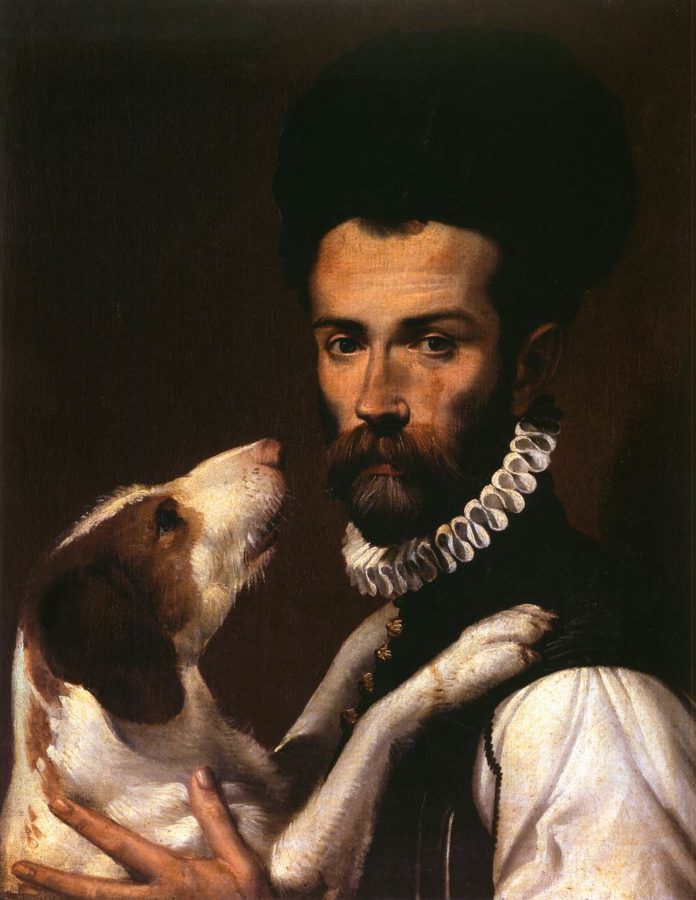
Bartolomeo Passorotti, Portrait of a Man with a Dog, 1585
I was glad that I’d spoken my mind, even if it hadn’t come out quite that tidily. What I’d actually said was spewed out sloppily and virtually unintelligible, but the recipients had felt my wrath. I had been prepared: the speech had begun to form, under my smoldering breath, as I viewed them in the distance and anticipated having to slow down and negotiate my way around another boring couple with their dumb beasts spread out across the sidewalk. It had become impossible to walk or ride up this mostly residential avenue, with tasteful new cafes springing up every couple of blocks, without encountering an endless procession of young couples, carrying their cups of six-dollar coffee in one tattooed hand and their cell phones in the other, often at eye level, as if propelled forward by their sinister force.
Having exhausted myself with that splenetic outburst and subsequent surge of cycling energy, I stood behind a fence in the alley, slightly shaken by our recent interaction—as I trusted they also were— gasping for breath and looking down at the avenue below, waiting for the couple and their attendant train of dogs to pass by.
I tried to imagine how it would feel to consume that much public space and decided that it would make me feel uncomfortable. The prospect of compounding that awkwardness by ordering a stranger to get out of my way was unthinkable. This individual, however, was of a different breed, and he had instantly sized me up as somebody he could adopt a haughty tone with: a harmless old white guy. Had I been a young Latino, he would have thought twice about talking down to a stranger with seeming impunity: he would have been concerned about retaliation, and also conscious of asserting the ‘white privilege’ that oozed from every pore of his bland being.
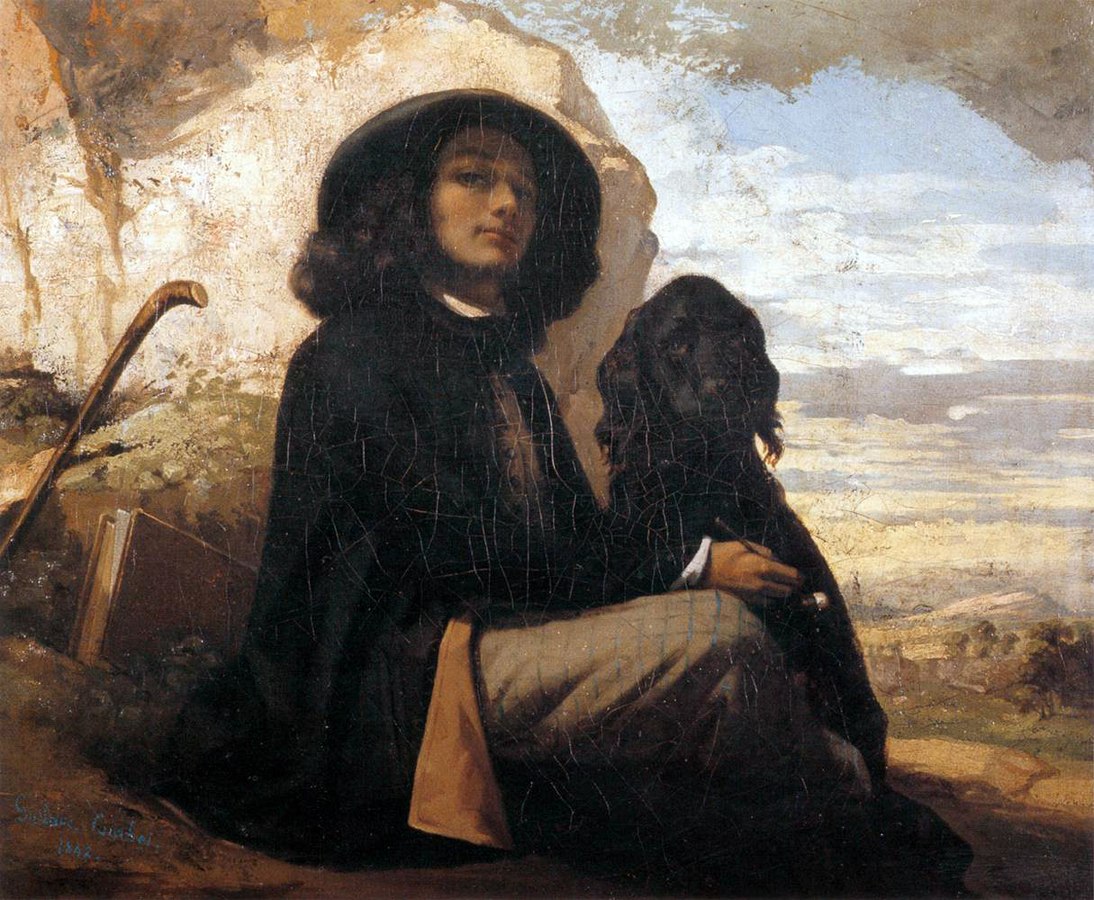
Gustave Courbet, Self Portrait with a Black Dog, 1842
His words bespoke a vulgar insensitivity: the ever-so-unsubtle implication being that amid the excess of constant romantic and bestial companionship that comprised his stupefyingly charmed life, no room could be made for a passing cyclist. Despite already occupying every square inch of the sidewalk, he must still assert his dominance, and in doing so callously remind that single man, riding alone through the night, that he lacks those regulation accessories—his faithful hounds, his lady fair—with which the complacent young beardo shamelessly surrounds himself. It is also a perfect opportunity to show his girlfriend that he is the sort of man who will protect his family.
If the young beardo had been alone, he wouldn’t have said anything. But people like that are never alone: they always have their dogs for company. The big dog was probably his, the two smaller dogs hers. The dog serves to signify an aspiring breeder. Dog ownership is a sort of rehearsal for child-rearing, in which the same sort of discipline and baby talk are employed that will later be used with children. Those dogs would soon be keeping pace with a stroller, and the proud parents would be adopting an even more officious tone when ordering an errant cyclist from their ever-widening expanse of sidewalk.
Then what? Even more dogs to fill up their new house and drive the neighbors mad with their constant barking. If they didn’t already own a house, they were probably planning on buying one. It’s a seller’s market but you can still get a small fixer-upper for under a million if you’re willing to rough it a little.
I gazed down at the couple as they made their way up the avenue. They already had each other, but they had even more love to give – to their dogs.
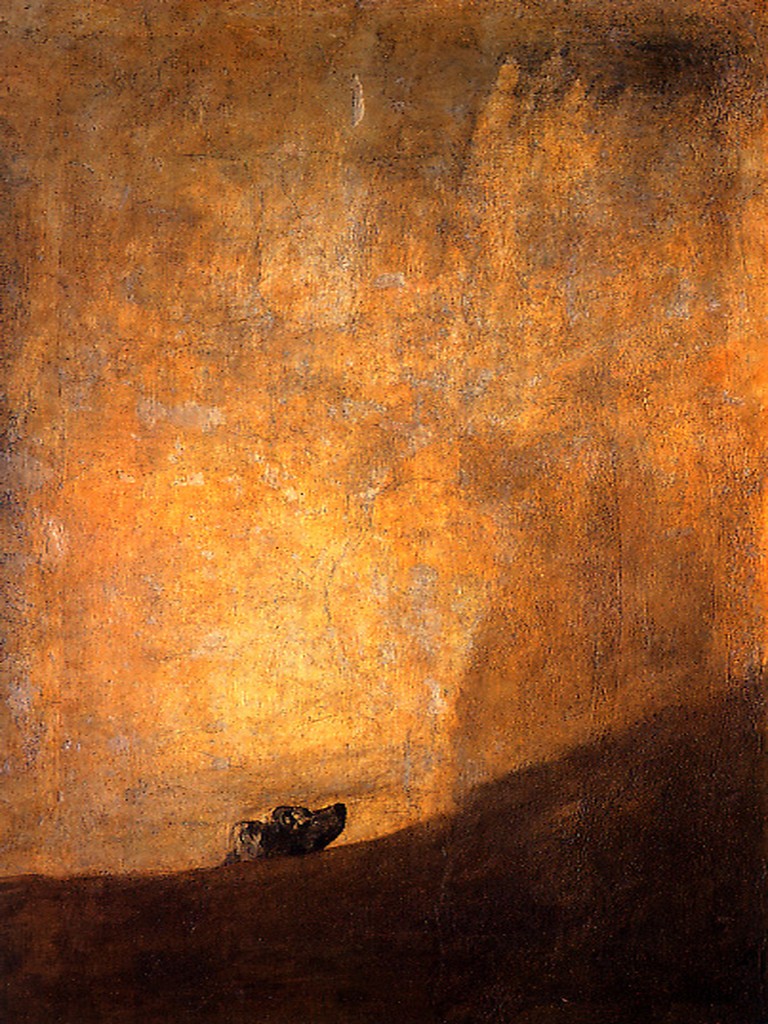
Goya, The Dog, 1819
Dogs provide their owners with something to lavish surplus affection on, and to control: one can control one’s dogs, and control other people with them. There isn’t much else one can do with them (teach them how to beg for food?). They often ‘serve’ as pampered objects to be admiringly gushed over, as a substitute for actual conversation for people who don’t otherwise have much to say for themselves.
The possessive pronoun, used in relation to a dog, is pronounced in the same lovingly tyrannical tone as it is when referring to one’s spouse. It’s all about ownership, blind loyalty, unearned unconditional love: precisely the qualities one requires, but usually fails to receive, from a spouse. Unable to keep his partner on a leash, the owner attaches one to his or her dogs, as a canine embodiment of arrogance and insecurity.
These vicious, slavering beasts must constantly be restrained, or they will attack each other, often with extreme savagery; and if they’re not attacking each other, they will attack people, if under the usually misguided impression that they are protecting their so-called masters. There is nothing autonomous about a dog’s life: they yield to the stick and respect punishment. As well as smelling strongly themselves, these malodorous beasts also have a strong sense of smell. It is said that when dogs smell fear on somebody, they will attack them. One has to wonder what kind of creature attacks somebody purely because that person fears them.
Gazing down at the avenue, I could still see the couple. They had now stopped and were, as I believe the correct expression is, curbing one of their furry friends. They looked on lovingly as the senselessly huge beast squeezed out a hard-won turd on a patch of sod beneath a dead tree.
The main ritual associated with dogs is taking them outside to defecate. Their courting rites consist of sniffing each other’s assholes: an excremental flirtation that blossoms into the act of love; and dogs only have sex from behind, which suggests they have issues with intimacy.
We are supposed to like it when a complete stranger’s bloodthirsty fluff-ball of love leaps up and starts humping one’s leg, clawing at one’s clothing and slobbering all over one’s face, even sinking a few harmless bites into one’s flinching arm. It’s all good fun, of course, and only a sissy would complain about a few minor surface wounds.
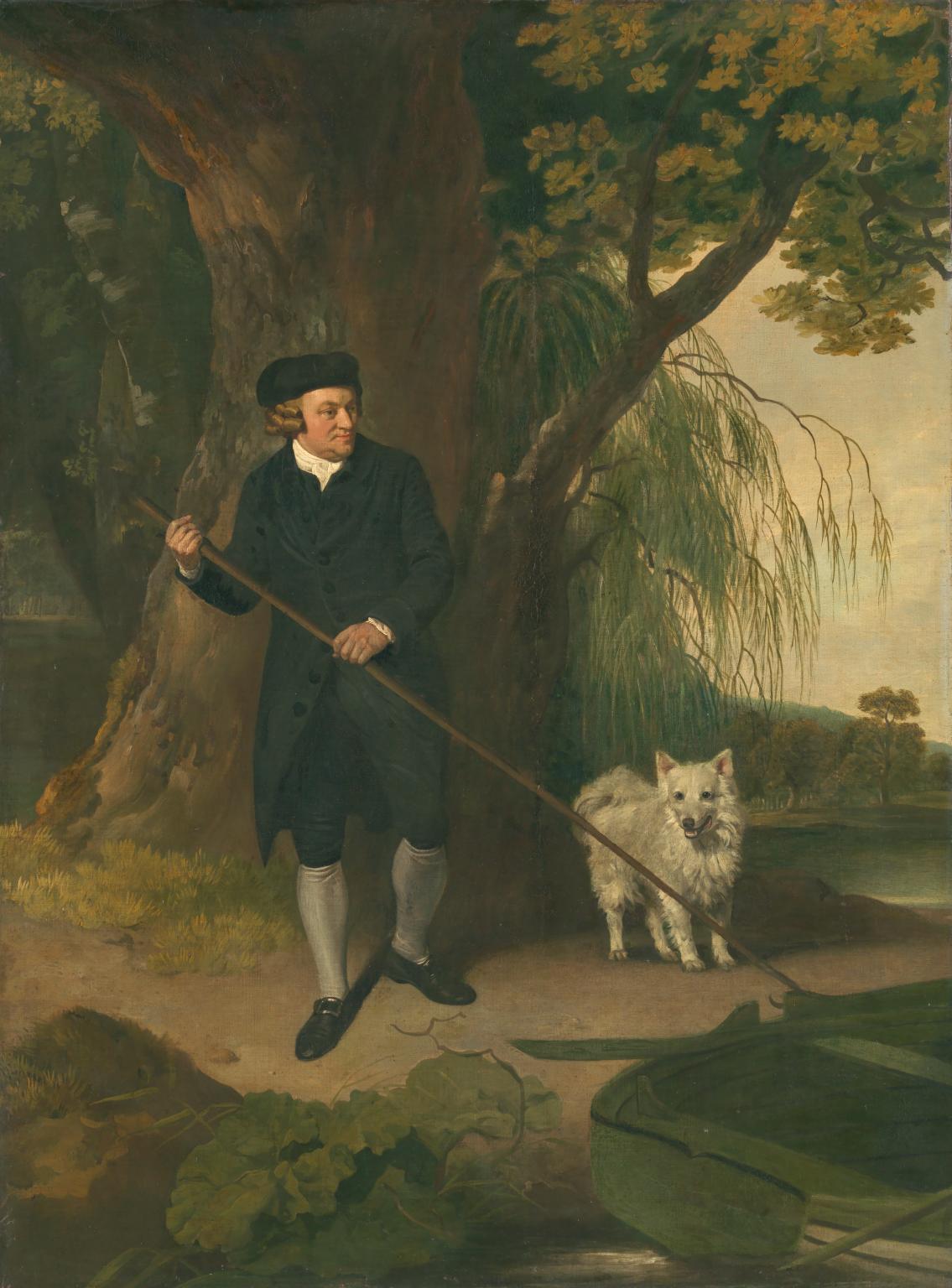
Francis Wheatley, Man with a Dog, 1775
We are even expected to enjoy the jagged, neurotic sound of their barking. Dogs will frequently be left outside all day, barking ferociously at anybody that passes by the yard they are confined to, wreaking havoc on the nervous systems of their more sensitive neighbors; and when one of those neighbors finally overcomes their natural distaste for confrontation and politely complains about the nerve-scraping pandemonium that for months on end has been rendering any form of rest or cerebral activity impossible, and turning their life into a living hell, the indignant owner will respond with surprise, “What’s the matter, you don’t like dogs?” (one of the more civil responses I’ve met with), while completely failing to appreciate that his neighbor’s pained objection is not the superfluous griping of a craven misocynist but the agonized cry of a martyr who has been relentlessly subjected to an excruciating form of aural torture, and that if a human was to stand in a yard and create a comparably mindless and abrasive cacophony, the authorities would be summoned within five minutes and the culprit forcibly silenced. Such defiantly insensate attitudes, as evinced by many proud dog-owners, lend credence to the long-suppressed and unspeakable truth: that hirsute, brutal, dog-like people like dogs, while the more refined, sweet-natured and peaceable among us prefer the subtle and seductive charm of cats.
Personally, I have nothing against dogs. If they don’t bark or bite or stink or attack, they can be delightful companions. I take dogs as they come, on the basis of their personal merits – unlike cats, that can be loved and respected as a species. It’s not the dogs that are a problem, it’s their owners: their bossy and condescending attitudes must often be a source of keen embarrassment to their much put-upon pets.
Looking down on the avenue, I was able to get a closer look at the couple. He was a shorts-T-shirt-and-trucker-cap kind of guy, his boyish and bewhiskered countenance unruffled by dissipation or ontological uncertainties, and she was his feminine counterpart: another charming young couple, typical of the new demographic, the new contentment – the settlers who pay exorbitant rents and patronize the expensive restaurants that open on a weekly basis. From whence have they sprung, this ever-expanding population of callow dullards? The hybridized bastard offspring of 50 years of youth culture, compressed by capitalism.
The male half of the couple, being the perfect gentleman, was bending down to scoop the fresh turd into a plastic bag. He seemed to have a special spoon at the ready to facilitate this delicate procedure. Having accomplished this, the couple crossed the street and disappeared, like figures in a fairy tale, trailed by their canine retinue, through the portal of a recently erected condominium complex.

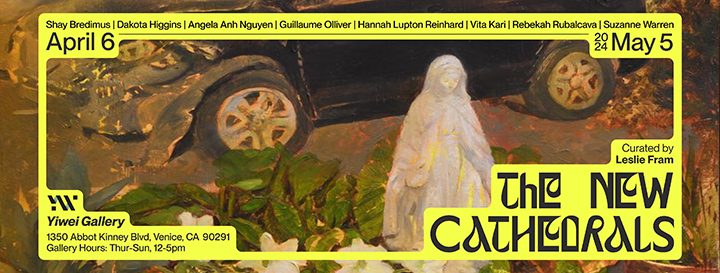



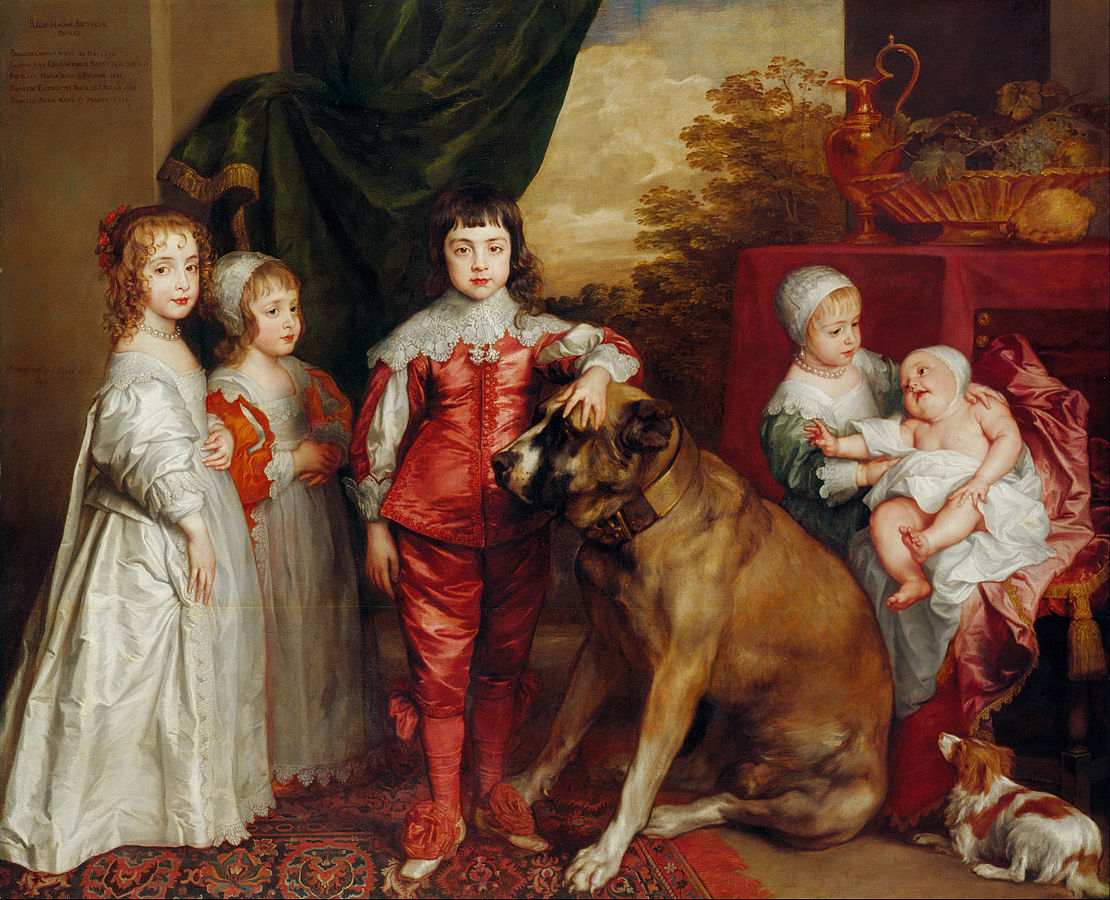
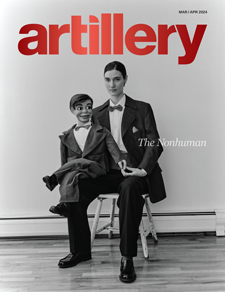


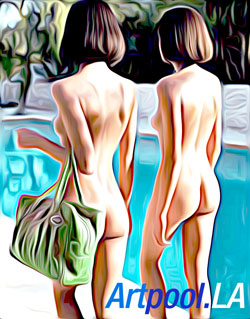
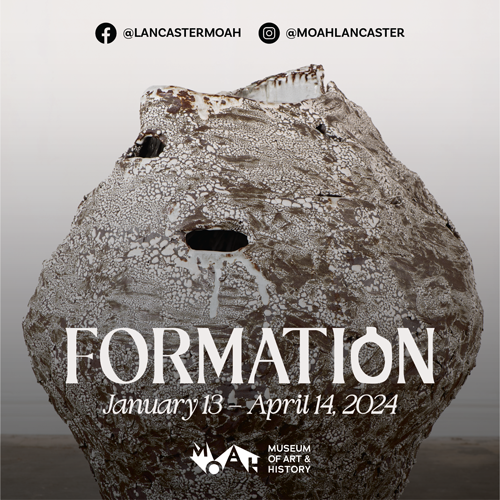




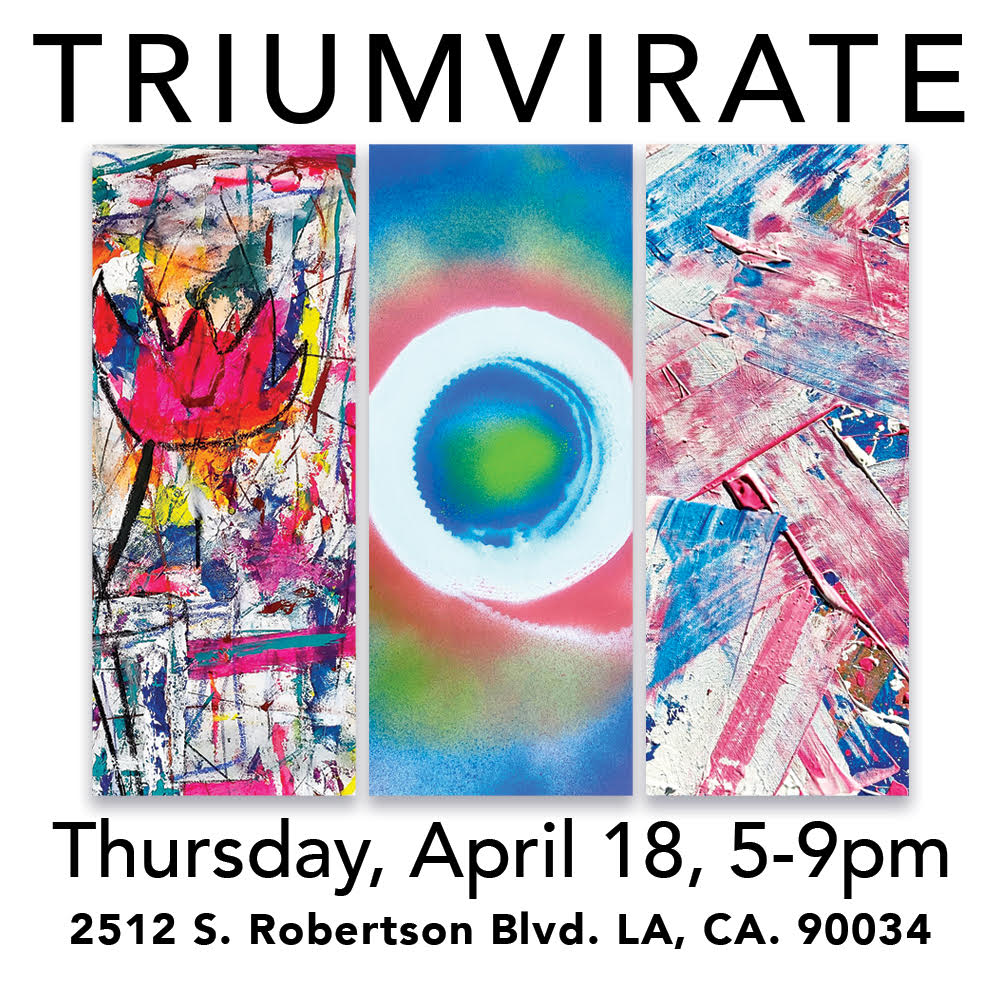
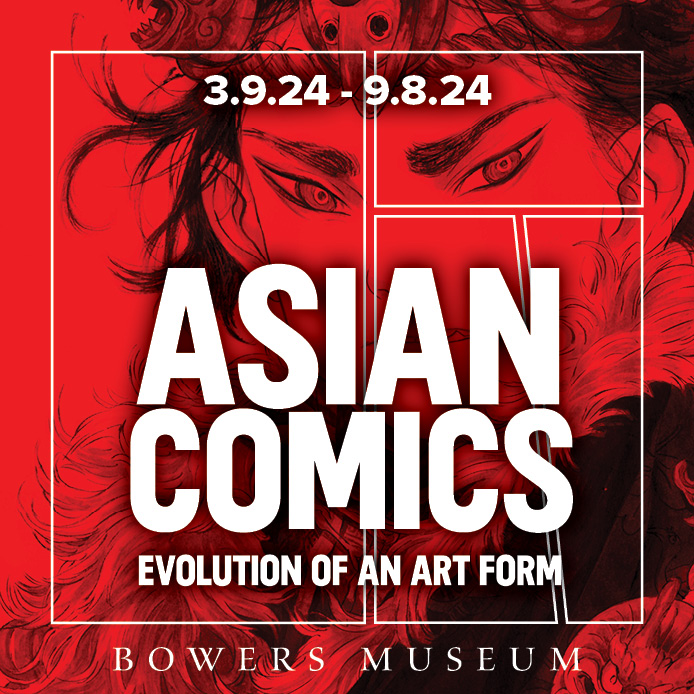
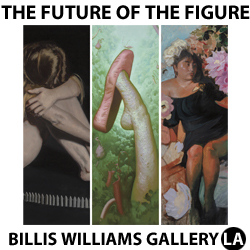
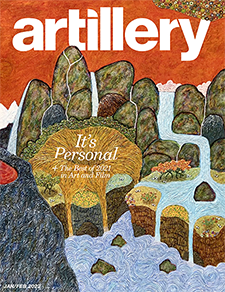
He was born with a silver dog turd spoon in his mouth, eh?
”It is legal to ride your bike on the sidewalk in Los Angeles,“ I told the woman backing of a driveway who nearly ran me over.
She started screaming that her father was a cop.
Another hero bites the dust.
W O O F !
A triumph!
A fine, insightful piece of work this is, it’s charm only slightly diminished by its sad veracity.
Thank you, JT.
I apologize for profaning your piece with a spell-check induced “its/it’s” horror… there is no edit here; perhaps the “moderation” will correct the abomination.
Yess. That’s a good boy…yess.
I’ve referred to dogs owned by (inevitably bossy) couples of childbearing age as “the starter kid” for decades. And I don’t really buy that dog owners truly love their dogs, given how quick they are to yell,”No! Stop that!” and yank on leashes when dogs display species-appropriate behavior that the leash-holders don’t approve of. So, yeah, I also came to the conclusion that it’s not so much dogs I dislike (I tend to believe I do but than belie that believe when I meet a dog and usually like them, if only since dogs still outclass humans in general)but dog owners.
picking up dogshit is inhuman.
the sidewalk is for walking.
I completely get it. I’ll never walk my fucking dog again. He’s a total embarrassment.